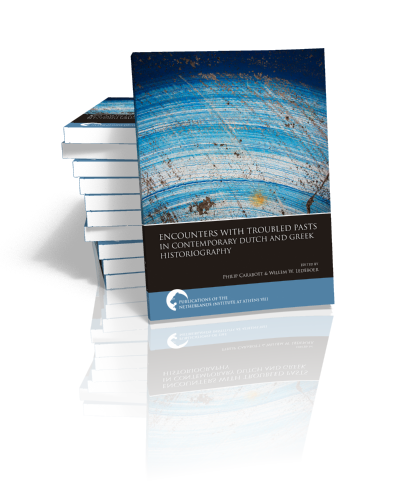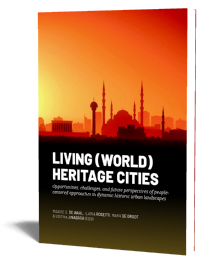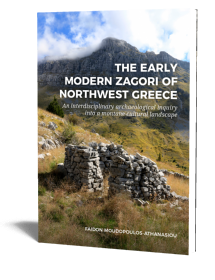Abstract:
The volume in hand throws light on historical encounters with troubled pasts in contemporary Dutch and Greek historiography. Contributors, experts in their respective research fields with a wide range of scholarly publications, eschew dominant national accounts, deconstruct top-down narratives, and situate the historical subject(s) at the centre of the analysis.
Troubled pasts are the outcome of local, national and international conflicts, of the continuous quest for growth and dominance, of Colonialism and Great Power rivalry, of ideologically-motivated purges, of Genocide, of National Liberation Struggles, and of Civil Wars. They go hand-in-hand with a great deal of human suffering and horrendous atrocities against civilians on ethnic, religious, racial and political grounds. The examination of troubled pasts and their accompanying imagery raise enduring questions: Whose past is remembered? How is the past appropriated and memorialised? Which pasts are at best neglected, at worst silenced – and why?
Encounters with Troubled Pasts addresses such issues by reference to Dutch colonialism in the New World and South East Asia, the Greek campaign in Asia Minor, the Shoah and its aftermath in Greece and the Netherlands, the Greek Civil War of the 1940s, Transitional Justice in Post-Soviet Russia and the Massacre of Srebrenica. It will be of interest to postgraduate students and academics working on Colonialism, the Shoah, modern Dutch and Greek History, Memory and on Oral History.
Contents
Preface
About the Contributors
An Undigested Past. The Netherlands and its Colonial History
Frank van Vree
Pride, Shame, Responsibility: New Historical and Heritage Studies on the Holocaust and Slavery
Dienke Hondius
The Other Side of the “Catastrophe”: Greek Army Atrocities During the Asia Minor Campaign (1919-1922)
Tasos Kostopoulos
An Unclaimed Past: The Shoah in Athens
Philip Carabott
The Silent Tree: Collaborationism, Political Power and Collective Guilt. A Dutch-Greek Case Study in Memory
Riki van Boeschoten
A Ticket of Re-admission into Dutch Society: The Controversy on Amsterdam’s Monument of Jewish Gratitude (1950)
Roel Hijink & Bart Wallet
Persecution Through Demonisation, Condemnation Through Silence: Reflecting on Left-Wing Violence in 1940s Greece
Iason Chandrinos
The “Morality Narrative” on Jewish Rescue in Greece: Commemorative Practices and Representations
Anna Maria Droumpouki
“Narratives Don’t Burn”: Understanding Oral Testimonies and Conceptions of Loyalty Among Exiled Greek Minorities in Central Asia After the Stalinist Repressions
Eftihia Voutira
Narratives Competing for the Public Space in Post-Soviet Russia: A Case Study in Challenges to Transitional Justice
Nanci Adler
The Narratives of the Survivors of Srebrenica
Selma Leydesdorff

Philip Carabott
Philip Carabott is Research Associate of King’s College London, where he taught modern and contemporary Greek history from 1990 to 2011; CEO of the Civil Non-Profit Company “Workshop on the Study of the Jews of Greece” (Athens, 2016-); and Commissioned Researcher of the Jewish Community of Athens. He has published widely on politics, society and minorities in Greece of the modern era. Currently, he is completing a monograph on the Shoah in Athens, and is Principal Investigator at the project “Hiding and rescue in German-occupied Athens, 1943-1944: Jewish persecutees and Greek compatriots”, which is financially supported by the German-Greek Future Fund of the German Federal Foreign Office.
read more

Willem Ledeboer
Willem Ledeboer is a graduate of Eastern European Studies / Sovietology at the University of Amsterdam. He works as deputy director at the Netherlands Institute at Athens, where he is responsible for the Institute’s program in the field of contemporary history. He has a special interest in the recent Greek history in general and the history of the Greek Jewish communities in the 20th century, the Greek Civil war, and the history of the Greek minority in the (areas of the) former Soviet-Union in particular.
read more











